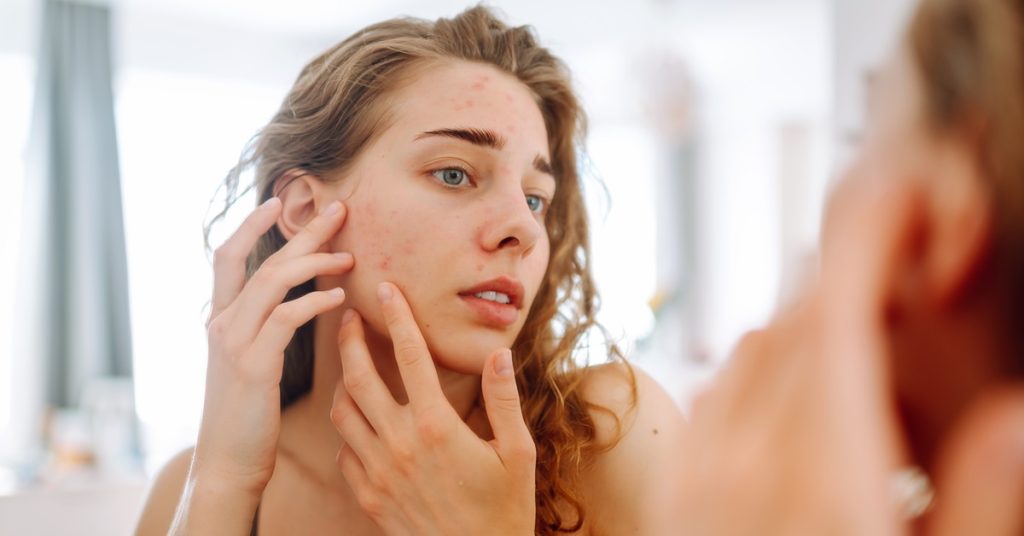The Marietta Dermatologist’s Guide to Acne Surgery

Welcome to “The Marietta Dermatologist’s Guide to Acne Surgery.” Are you grappling with persistent and stubborn acne? Have you tried myriad home remedies and over-the-counter products, only to be left with the same skin problems? In the following sections, we will explore acne surgery, a promising solution that offers a ray of hope for those seeking clear, healthy skin. From outlining the process involved to understanding its effectiveness, this guide aims to shed light on all aspects of this innovative dermatological approach. So, let’s embark on this journey toward acne-free skin together!
What is acne surgery?
Acne surgery is a procedure that removes deep-seated pimples, cysts, and nodules from the face. It is often used to treat severe acne or after other treatments have not been successful in treating the condition.
What are the different types of acne surgery procedures available?
The most common type of acne surgery is called incisional surgery. This procedure involves making small incisions to remove acne from the face. Other types of acne surgery include cryosurgery, which uses extreme cold temperatures to remove lesions, and laser ablation, which uses lasers to gently heat and remove lesions. At our Marietta office, your DESSNA dermatologist will be able to advise you on which type of acne surgery is best for your particular condition.
Who is a suitable candidate for acne surgery?
Acne surgery is suitable for individuals who have severe, deep-rooted acne lesions that have not responded to other treatments. Your dermatologist will be able to advise you on whether the procedure is right for you. Additionally, it is important to mention any medical conditions or medications you are taking before undergoing the procedure.
How does acne surgery help in treating acne?
Acne surgery removes deep-seated pimples, cysts, and nodules from the face, which helps to reduce the severity of acne. It can also help to reduce any scarring that may have been caused by the condition.
Can acne surgery completely remove all acne scars?
Acne surgery can help to reduce the visibility of acne scars, but it cannot completely remove all scars. Depending on the severity and location of the scarring, your dermatologist may recommend additional treatments such as laser resurfacing or chemical peels to further reduce the appearance of acne scars.
What is the success rate of acne surgery?
Acne surgery has a very high success rate and can help to reduce the severity of acne in many individuals. However, it is important to note that results may vary from person to person and will depend on factors such as age, skin type, and medical history. Additionally, it is important to follow your Marietta dermatologist’s aftercare instructions to achieve the best results from your acne surgery procedure.
How often should I have acne surgery?
Acne surgery is typically done on an as-needed basis. It is not recommended to have the procedure more than once or twice a year to avoid over-treatment. If you are experiencing frequent acne breakouts, your dermatologist may recommend other treatments such as topical medications or laser resurfacing to help reduce their severity.
Is acne surgery a painful procedure?
Acne surgery is generally not a painful procedure. Your dermatologist will use a local anesthetic to numb the area before your acne surgery at our Marietta office, so you should only feel mild discomfort during the treatment. After the procedure, some individuals may experience minor pain and swelling for a few days. If this occurs, your dermatologist can recommend over-the-counter or prescription medications to help reduce the discomfort.
Is acne surgery covered by insurance?
In some cases, acne surgery may be covered by insurance. It is best to check with your insurance provider before scheduling an appointment to determine if the procedure will be covered.
What is the cost of acne surgery?
The cost of acne surgery will vary depending on several factors, including your insurance coverage and the complexity of the procedure. It is best to contact our Marietta office directly for an exact quote before scheduling an acne surgery appointment.
Are there any risks or side effects associated with acne surgery?
As with any medical procedure, there are always some risks or side effects associated with acne surgery. These include infection, bleeding, scarring, and post-operative pain. Additionally, there is also a risk of over-treatment or under-treatment if the procedure is not performed correctly. It is important to discuss all potential risks and side effects with your doctor before undergoing any type of acne surgery.
What should I expect during the procedure?
Before your acne surgery, your Marietta dermatologist will provide specific instructions on how to prepare. This may include avoiding the use of certain medications or products before the procedure. During the procedure, you may experience mild discomfort as the area is numbed with a local anesthetic. Once the area is numb, your dermatologist will make small incisions to remove any deep-seated pimples, cysts, and nodules.
How long does it take to heal after acne surgery?
For most of our Marietta patients, it typically takes about one to two weeks for the acne surgery site to heal. During this time, the treated area should be kept clean and dry. Additionally, you should avoid direct sun exposure while the area is healing, as well as any activities that could irritate the skin. Your dermatologist may also advise you to take over-the-counter pain medications or apply a topical antibiotic or hydrocortisone cream during the healing process.
What should I do after my acne surgery procedure?
Your Marietta dermatologist will provide detailed aftercare instructions to help ensure a successful recovery from your acne surgery. This may include keeping the area clean and dry, avoiding direct sun exposure while healing, and using any topical medications or creams prescribed by them. Following these instructions carefully is essential for achieving optimal results from the acne surgery procedure.
Is it possible to prevent acne flare-ups after the procedure?
Yes, there are several steps you can take to help reduce the risk of future acne breakouts. First and foremost, be sure to follow your dermatologist’s aftercare instructions and use any medications prescribed by her or him. Additionally, it is important to keep the treated area clean and dry. Lastly, you should also avoid using oil-based products or makeup on the area for a few weeks after the procedure.
Are there any alternative treatments for acne scars besides surgery?
Yes, there are several non-surgical treatments available for acne scars. These include chemical peels, laser resurfacing, and topical medications. Your DESSNA dermatologist will be able to provide more information on the best treatment option for you based on your particular condition.
In conclusion, acne surgery is an effective treatment that can significantly reduce the visibility of acne scars and improve the overall quality of your skin. While the procedure is not without risks, they are minimal when compared to the potential benefits.
Our board-certified dermatologists at our Marietta location are experts in acne surgery and treatments and will work with you to determine the most effective treatment plan for your specific needs. Don’t let acne scars hold you back any longer. Take control of your skin health today and schedule a consultation for acne surgery. Your journey toward clearer, healthier skin begins with us. Your skin deserves the best care, and we are here to provide it.
Sources: Wiley Online Library, Springer, Taylor & Francis Online, ScienceDirect, IngentaConnect, Dermatologic Surgery Journal



